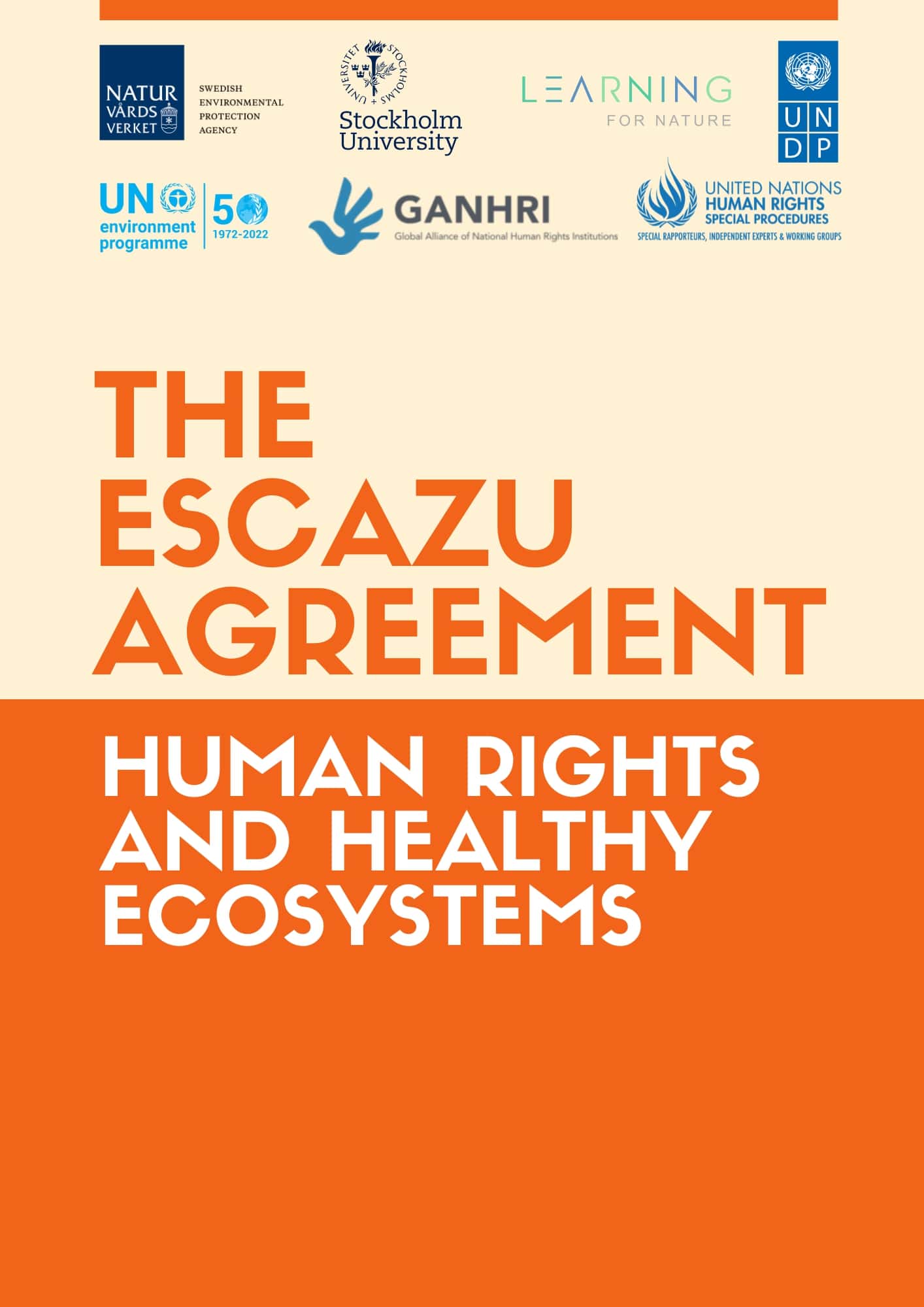Adopted on 4 March 2018, the Regional Agreement on Access to Information, Public Participation and Justice in Environmental Matters in Latin America and the Caribbean (the Escazú Agreement) became the first agreement in the world to prescribe legal protection for environmental human rights defenders and the first regional agreement in Latin America and the Caribbean with a focus on both environmental and human rights.
The Agreement’s entry into force on Earth Day 2021 after being ratified by half of its 24 signatory countries is a cause for celebration: it is a historic achievement for environmental democracy both regionally and globally, which provides a common framework to address the triple planetary crisis – biodiversity loss, climate change and pollution- through improved governance and increased transparency.
Upon the adoption of the United Nations Human Rights Council Resolution 48/13 affirming that a clean, healthy and sustainable environment is a basic human right, as well as the launch of the UN Secretary-General's Global Call to Action for Human Rights, the recognition that human rights are central to the world’s most pressing issues has continued to grow in Latin America and the Caribbean, and beyond. However, greater action, enhanced coordination, and concrete commitments are still needed to advance laws and policies that regulate, promote, and implement in practice these basic human rights.
To catalyse action to implement the Escazú Agreement in synergy with the Sustainable Development Goals (SDGs) and biodiversity-related Multilateral Environmental Agreements, the Environmental Governance Programme (EGP), in partnership with the Nordic Institute of Latin American Studies at Stockholm University, the UNDP Learning for Nature Programme, and UNDP in Latin America and the Caribbean, convened a Dialogue Series on "The Escazú Agreement, Human Rights and Healthy Ecosystems". This Dialogue Series was co-sponsored by the UN Environment Programme (UNEP), the Office of the United Nations High Commissioner for Human Rights (OHCHR), and the Global Alliance of National Human Rights Institutions (GANHRI), as part of a broader partnership on the UN Secretary-General's Call to Action for Human Rights.
Read the Dialogue Series Report:

Quotes by Keynote Speakers:
“Environmental justice does not happen in a vacuum. It forms part of the broader governance efforts, and is dependent upon how states, institutions and citizens understand environmental issues and the importance of protecting, saving and safeguarding natural resources.” - Jairo Acuña-Alfaro, Regional Team Leader - Governance, UNDP.
“The Escazú Agreement is an innovation in environmental participatory democracy and is a strategic tool to address the triple crisis of biodiversity loss, climate change and pollution.” - Claudia Ituarte-Lima, Senior Researcher at the Raoul Wallenberg Institute and Regional Deputy Director for Latin America of the Global Network on Human Rights and Environment.
“Now, more than ever, we need all the help we can get to face the fourth crisis facing mankind and the planet: The pandemic crisis, the biodiversity crisis, the climate crisis and the pollution and waste crisis. The common denominator among these four crises is us: humankind.” - Santiago Carrizosa, Senior Technical Advisor on Biodiversity and Ecosystems for Latin America and the Caribbean, UNDP.
“We have struggled to defend our rainforest, to defend our home in the Pastaza province of Ecuador. Oil companies have contaminated our forests and polluted our rivers in the Pastaza province. Waorani Women, we have organised ourselves to fight the mining, oil and timber industries.” - Patricia Mencay, President of the Association of Waorani Women of the Ecuadorian Amazon (AMWAE).
“Now is the time to analyse and investigate jointly how we are going to move forward towards the implementation of the Escazú Agreement, respecting all the legislations and national constitutions that refer to the right to a healthy environment. States need to work together in a direct and committed way.” - Maria Candela Zaffiro Tacchetti, UNEP Panama.
“Through its human rights approach, the Escazú Agreement creates specific obligations for governments with regards to public participation, access to justice, and access to information, serving as an innovative normative tool to increase government accountability.” - Xavier Mena, Deputy Regional Representative, Regional Office for South America, OHCHR.
“We as the young people are going to keep promoting action for a participatory democracy with an effective engagement so that everyone can be included in the decision-making process.” - Paloma Costa Oliveira, Member of the United Nations Secretary-General's Youth Advisory Group.

Please log in or sign up to comment.